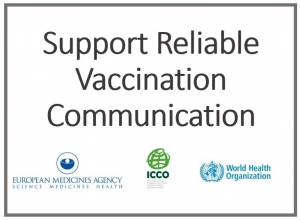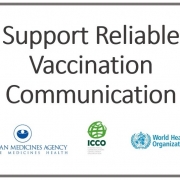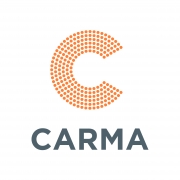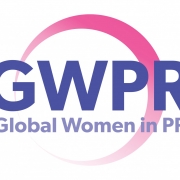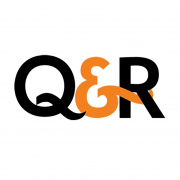Maja Pawinska Sims, Associate Editor, PRovoke Media
The crisis is already taking a huge psychological toll on a communications industry made up of social, connected people.
“It’s all a bit weird, isn’t it?” Every conversation I have had over the past week or so seems to have started in this way: a measure of British understatement to help us handle a situation that, as we now know, is quite terrifying. Barely days ago, many of us working in the communications industry in the UK and the US were still kidding ourselves that it was, mostly, “business as usual”. How distressingly wrong, how ostrich-like and arrogant, that has turned out to be.
Even as a community of some of the most creative, agile, innovative people, the conversations I’ve had with PR professionals around the world show that the spread and evolving impact of the coronavirus is happening faster than we can psychologically process. No sooner have we adopted one brace position, than we have to shift to accept another new reality.
The timeline has escalated like nothing any of us have ever seen, in any lifetime. It’s not “just” a pandemic and it’s not “just” an economic crisis: in just one financial quarter, coronavirus has challenged the very foundations of modern life — the way we all work and play — and it’s proving extraordinarily difficult to deal with, in human terms.
In January, those of us in Western countries were distant observers of the virus, as news of its emergence in China reached us. When global business, political and NGO leaders gathered in the snowy mountains of Davos to talk about solving the world’s biggest problems, coronavirus was barely on the agenda.
In February, we learned that Covid-19 had reached EMEA and was spreading particularly aggressively through Italy. In our industry, alarm bells only started to ring when “uncancellable” events attended by PR people and their clients started to drop, starting with Mobile World Congress in Barcelona, followed by SXSW.
At the start of March — just three weeks ago, but my goodness, doesn’t it seem like another lifetime already — most PR practitioners’ diaries in the UK and the US were still full of in-person meetings, lunches and events.
Then the mood started to shift more markedly. Major marketing networks and many independents had announced they were shifting to home-based working. Stock markets plummeted. Schools and nurseries started to close. Supermarket shelves emptied and we witnessed, as elsewhere in the world, frantic hamstering as we sought to maintain the illusion of control. Practically every sports and music event due to take place before the summer — those great, joyous, gatherings of people, not to mention sponsorship cash and campaigns – was cancelled or postponed, even the mighty Olympics and Glastonbury.
When Cannes announced it was delaying the Festival until the end of October, it brought home for many of us just what a long haul we’re in for.
Over the past few days, political leaders have become steadily firmer and more prescriptive and proscriptive, about where we can and can’t go, how we must live, work, shop and study now. For those of us used to a relatively light governmental touch, the new dynamic between state and citizen is proving challenging. Every daily briefing contains a new shock to our liberty. In the space of a couple of weeks, the lexicon has changed: barely a sentence is uttered that doesn’t include at least one of the “coronavirus bingo” terms: self-isolation, social distancing, panic buying, lockdown, quarantine.
So what will the impact of Covid-19 be on the human beings in the communications industry? For many, it will require a rapid stepping up of skills, since we’re all crisis communicators now, and while seasoned crisis management, corporate comms and public affairs practitioners may have an advantage in terms of expertise, the sheer scale and unprecedented nature of this issue means there’s not a PR pro in the world who has “been there, done that”. For some in particularly hard-hit sectors such as travel and tourism, entertainment, hospitality and retail, the situation may well prove overwhelming.
For leaders in the industry, from the heads of networks and in-house teams to the founders of independent agencies, there are already huge questions around how the crisis will affect their people. Heartfelt messaging around “the health and wellbeing of our people comes first” is reassuring, but how long before incredibly painful decisions need to be made? As the global economy tanks, it seems inevitable that — despite various government bailout schemes — in the coming weeks and months we’ll see agencies forced to impose paycuts, furlough staff, make redundancies and start to fail. The future of the huge number of freelance contractors working in PR is another question. Just how resilient will the industry, as businesses and individuals, turn out to be?
With best-guess scenarios all we have right now, the immediate focus has been on the day-to-day: the practical, technological solutions to working remotely and continuing to keep the industry functioning. After many of us spent the past decade avoiding video calls, within a week the entire industry has embraced them, wholeheartedly. Every meeting is now on Zoom, Microsoft Teams or Webex. Even if — as the coronameme goes — we’re four weeks from discovering everyone’s true hair colour, we’re all allowing access to the webcam, now. (There is also already a lively virtual social scene: with the click of a link, a novelty background and a real-life cocktail, we can still be in the room together.)
And if we’re craving seeing glitchy faces, eyes and smiles after a week (even with our kids wandering into the picture) how are the social creatures of communications going to cope long-term? If even high-functioning introverts among our community are feeling weirdly isolated, it’s going to be much, much worse for the extroverts. PR people are good at being together and sparking ideas off each other, whether a productive meeting of minds over coffee or lunch, networking at a reception or awards do or being controversial on a conference panel. There are many more friendships and working relationships based on mutual respect in this industry than combatants. What will we do for the next few weeks (or maybe months) with all that energy, without all those double air-kisses, laughter and verbal sparring, without the constructive, creative, inspiring chat?
Added to this, focusing on the job is hard. We’re concerned about our clients, but we’re also concerned about the elderly parents we can’t look after. We’re working alone in unfamiliar environments. Being a working parent was hard enough with childcare and an office to escape to: we have no idea how, when we’re all at home, we can simultaneously be good parents of children who need home-schooling but are missing their friends, or young enough to need constant supervision, let alone morph overnight into untrained teachers. And the background to the logistics is that we’re probably all at some point on the spectrum of anxiety, right now. Operating at peak effectiveness against a background of fear is almost impossible.
There’s already a huge conversation around mental health and wellbeing in the PR industry. My instinct after many conversations with some of the most robust people I know over only the past week or two, is that the mental health toll of our current predicament will be huge. Among all the lovely screen shots of agencies cheerfully doing their team video meeting in excellent hats, I’m not sure how we’re really going to cope long term. Isolation and physical distancing will hit us all, to a greater or lesser extent, and even the most resilient of us will feel more vulnerable for a huge variety of reasons.
The industry is rising to the occasion in recognising that it’s not business as usual in psychological terms, and agencies are being as creative as ever in making sure mental and physical health during quarantine don’t fall by the wayside, from Blurred providing daily online team exercise sessions to Newgate offering bitesize language classes. There’s also been a lot more checking in with each other over the past week. Work calls and emails are no longer just about work. Even with relative strangers, they now mostly include some human conversation. How are you doing? Are the family well? Isn’t home schooling challenging? Did you manage to find toilet roll this week? We’ve all started signing off with take care, or stay safe, and genuinely meaning it.
It’s been a tough time, already, and it’s going to get tougher. Many of us are struggling, before even factoring in that people we know and love may not survive Covid-19. But, as ever with the people in our industry, we will adapt to the new normal, and come up with great new ideas, new ways of working, and new ways of supporting our clients to be the best they can be in the new world order. As poet Emily Dickinson said: “’Hope’ is the thing with feathers – that perches in the soul – and sings the tune without the words – and never stops – at all.”
Hang on in there. See you on the other side.
